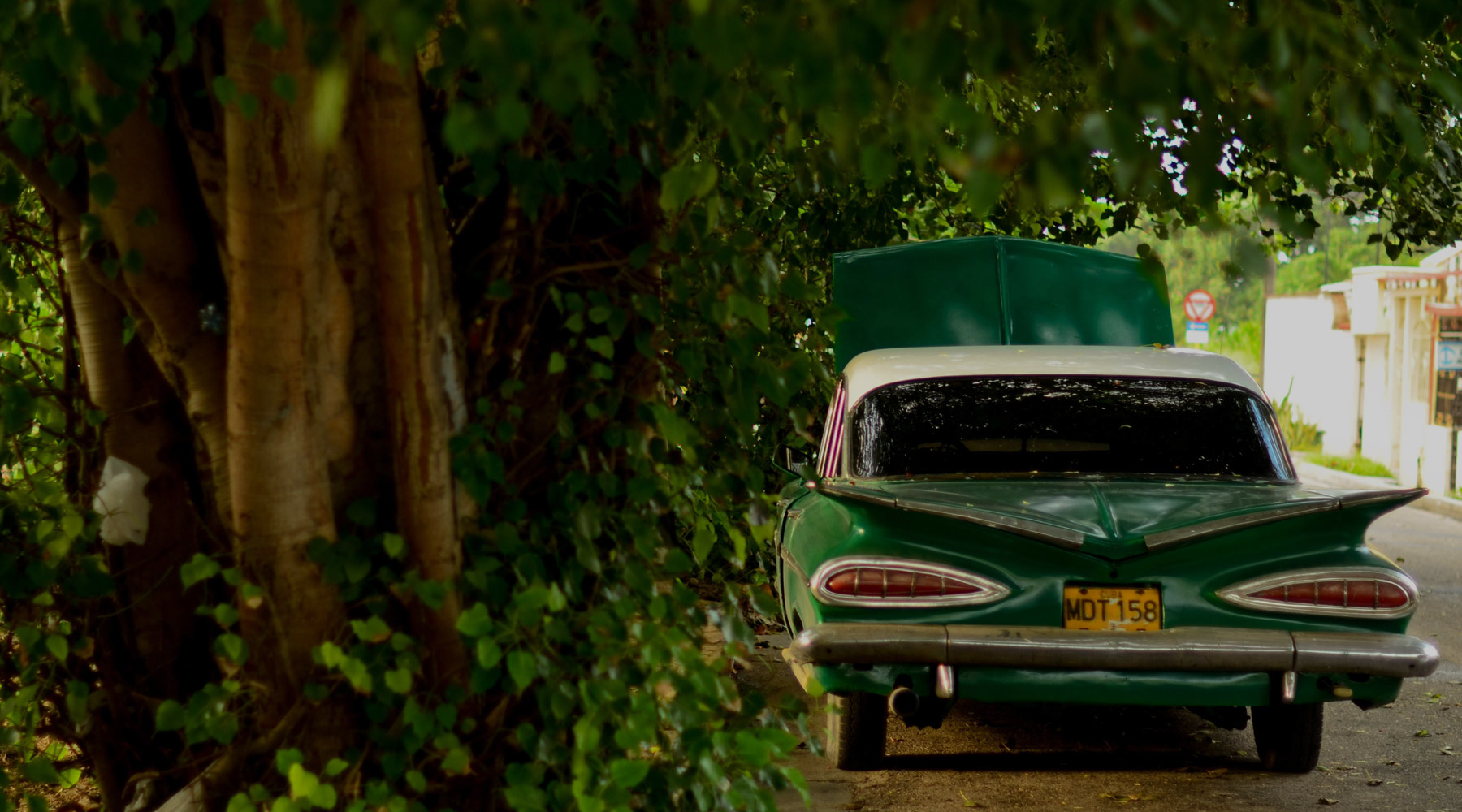Creating An Inviting Space For Client Meetings

When an individual succeeds in tapping his reserve energies, others marvel at the tremendous tasks he accomplishes. They judge in terms of superficial energy, and for such the results would, of course, be impossible, even though many of the admiring spectators could actually equal or excel the deed.
Consider for a moment the work achieved by Mr. Edward Payson Weston who recently walked the entire distance from New York to San Francisco without halt or rest in one hundred and four days. Throughout the entire journey Mr. Weston covered about fifty miles daily, once attaining the remarkable distance of eighty-seven miles in twenty-four hours. Though Mr. Weston is seventy years of age, at the close of the walk he seemed to be relatively free from exhaustion and undaunted in spirit.
The work accomplished by such men as Gladstone and Roosevelt is incomprehensible to most of us who have never undertaken more than puny tasks. These men retain their strength and in no way seem to be undermining their health by the accomplishment of their Herculean labors. Body and mind seem to respond to the demands made upon them. Their periods of sleep and their vacations seem to be no more than the hours and days of rest required by those of us who accomplish infinitely less.
No need, however, to go beyond the field of business or industry to find men whose super-energy has carried them to epochial discoveries or feats of organization. The invention of the incandescent lamp by Edison is said to have been accomplished, for instance, only after forty-eight hours’ continuous concentration on the final problem of finding the right carbon filament and determining the proper degree of vacuum in the inclosing bulb. Months of experiment and research had gone before; eighteen hours a day in the laboratory had been no uncommon thing for the inventor and his assistants, but in the last strenuous grapple with success his own physical and mental powers were alone equal to the strain. Not once during the two days and nights did he rest or sleep or take his attention from the successive tests which led up to the assembling of the lamp which lights the world’s work and play.
The steel blade that is used seems to last as long as the one which is allowed to lie idle. The wearing out in the one case does not seem to be more destructive than the rusting out in the other.
We have a choice between wearing out and rusting out. Most of us unwittingly have chosen the rusting process.
This, indeed, may be said to be Edison’s regular method of work, as it is the method of many other men who have accomplished great things in science and industry. Both mind and body have been trained and accustomed to exertions which seem quite impossible to ordinary individuals.
Many persons find that increased intellectual activity results in less fatigue and greater achievements. As a student I did my best work and enjoyed it most the year I carried the greatest number of courses and assumed the most outside duties. In my capacity as adviser to college students I find many who are able to accomplish thirty per cent more work than is expected of college students but fail to do equally well the regular amount. There are others who can carry the regular amount but not more without injury to their health.
College grades afford a means of recording intellectual efficiency directed toward particular problems. With no apparent change in bodily conditions the same student frequently increases his efficiency a hundred per cent. The increase seldom has an injurious effect on health, but is merely evidence of the fact that he has suddenly wakened up and is applying energies which before were undiscovered. A slow walk for a single mile leaves many persons “dragged out” and exhausted, but a brisk walk of the same or a greater distance results in invigoration and recuperation. Likewise the droning over an intellectual task results in exhaustion, while vigorous treatment whets the appetite for additional problems.
This swift, decisive attack on problems was the method of Edward H. Harriman, who crowded into ten years the railroad achievements of an extraordinary lifetime. Decisions involving expenditure of many millions of dollars were arrived at so quickly as to seem off-hand, even reckless. In reality, they were the products of brief periods of intense application in which he reviewed all the conditions and elements involved, and forged his conclusion, as it were, at white heat. Back of each decision was exact and thorough knowledge of the physical and traffic conditions of each of his railroads. In the case of the Union Pacific, at least, he gained this mastery by patient, intensive study of each grade and curve and freight-producing town on its 1800 miles of track.
The inhabitant of the torrid zone upon moving to a northern climate is severely affected by the chill of the atmosphere. The discomfort may last for days or months, but he becomes acclimated and is able to withstand the cold without serious discomfort. Likewise the inhabitant of a cool climate feels exhausted
by the heat of the torrid zone. In some cases he is unable to accustom himself to the change, but in many instances the acclimatization follows rapidly and leaves the individual well fortified against the dangers of excessive heat.
Persons who have accustomed themselves to stimulants of any sort are completely depleted if they are unable to get the special form to which they have been accustomed. This holds true for tobacco, morphine, coffee, and many other forms of stimulants actually indulged in by many persons. If they are able to resist the temptation and deny themselves the stimulant, the period of exhaustion soon disappears and the subject may even lose all craving for that which formerly seemed essential to his very existence.
Now Is The Time To Rebrand

The modern business man is the true heir of the old magicians. Every thing he touches seems to increase ten or a hundredfold in value and usefulness. All the old methods, old tools, old instruments have yielded to his transforming spell or else been discarded for new and more effective substitutes. In a thousand industries the profits of to-day are wrung from the wastes or unconsidered trifles of yesterday.
The only factor which has withstood this wizard touch is man himself. Development of the instruments of production and distribution has been so great it can hardly be measured: the things themselves have been so changed that few features of their primitive models have been retained.
Our railroad trains, steamships, and printing presses preserve a likeness more apparent than actual. Our telephones, electric lights, gas engines, and steam turbines, our lofty office buildings and huge factories crowded with wonderful automatic machinery are creations of the generation of business men and scientists still in control of them.
By comparison the increase in human efficiency during this same period (except where the worker is the slave of the machine, compelled to keep pace with it or lose his place) has been insignificant.
Reasons for this disproportion are not lacking. The study of the physical antedates the study of the mental always. In the history of the individual as well as of nations, knowledge of the psychical has dragged far behind mastery of tangible objects. We come in contact with our physical environment and adjust ourselves to it long before we begin to study the *acts by which we have been able to control objects around us.
It was inevitable, therefore, that attention should have been concentrated upon the material and mechanical side of production and distribution. Results there were so tangible, so easily figured. For example, if the speed of a drill or the strokes of a punch press were multiplied, the increase would be easily recognized. The whole country, too, was absorbed in invention, in the development of tools to accomplish what had always required hand labor. The effort was not so much to increase the efficiency of the individual worker— though many wise and far-sighted employers essayed studies and experiments with varying success—as to displace the human factor altogether.
As the functions and limitations of machinery have become clearer in recent years, business men have generally recognized the importance of the human factor in making and marketing products. Selecting and handling men is of much more significance to-day than ever before in the history of the world —the more so as organizations have increased in size and scope and the individual employee is farther removed from the head and assigned greater responsibilities.
It is not a difficult task to build and equip a factory, to choose and stock a store. The problems of power and its transmission come nearer solution every day. Physics and chemistry have revealed the secrets of raw materials. For any given service, the manufacturer can determine the cheapest and most suitable metal, wood, or fabric which will satisfy his requirements, and the most economical method of treating it.
Of the elements involved in production or distribution, the human factor is to-day the most serious problem confronting the business man. The individual remains to be studied, trained, and developed—to be brought up to the standard of maximum results already reached by materials and processes.
Few employers can gather a force of efficient workers and keep them at their best. Not only is it difficult to select the right men but it is even harder to secure top efficiency after they are hired. Touching this, there will be no dispute. Experts in shop management go even farther. F. W. Taylor, who has made the closest and most scientific study, perhaps, of actual and potential efficiency among workers, declares that:—
“A first-class man can, in most cases, do from two to four times as much as is done on the average.”
“This enormous difference,” Mr. Taylor goes on to say, “exists in all the trades and branches of labor investigated, from pick- and-shovel men all the way up the scale to machinists and other skilled workmen. The multiplied output was not the product of a spurt or a period of overexertion; it was simply what a good man could keep up for a long term of years without injury to his health, become happier, and thrive under.”
Ask the head of any important business what is the first qualification of a foreman or manager, and he will tell you “ability to handle men.”
Men who know how to get maximum results out of machines are common; the power to get the maximum of work out of subordinates or out of yourself is a much rarer possession.
Yet this power is not necessarily a sixth sense or a fixed attribute of personality. It is based on knowledge of the workings of the other man’s mind, either intuitive or acquired. It is the purpose of this and succeeding chapters to consider some of the aspects of human nature that can be turned to advantage in the cultivation of individual efficiency and the elimination of lost motion and wasted effort.
The Door In The Wall

One confidential evening, not three months ago, Lionel Wallace told me this story of the Door in the Wall. And at the time I thought that so far as he was concerned it was a true story.
He told it me with such a direct simplicity of conviction that I could not do otherwise than believe in him. But in the morning, in my own flat, I woke to a different atmosphere, and as I lay in bed and recalled the things he had told me, stripped of the glamour of his earnest slow voice, denuded of the focussed shaded table light, the shadowy atmosphere that wrapped about him and the pleasant bright things, the dessert and glasses and napery of the dinner we had shared, making them for the time a bright little world quite cut off from every-day realities, I saw it all as frankly incredible. “He was mystifying!” I said, and then: “How well he did it!. . . . . It isn’t quite the thing I should have expected him, of all people, to do well.”
Afterwards, as I sat up in bed and sipped my morning tea, I found myself trying to account for the flavour of reality that perplexed me in his impossible reminiscences, by supposing they did in some way suggest, present, convey—I hardly know which word to use—experiences it was otherwise impossible to tell.
Well, I don’t resort to that explanation now. I have got over my intervening doubts. I believe now, as I believed at the moment of telling, that Wallace did to the very best of his ability strip the truth of his secret for me. But whether he himself saw, or only thought he saw, whether he himself was the possessor of an inestimable privilege, or the victim of a fantastic dream, I cannot pretend to guess. Even the facts of his death, which ended my doubts forever, throw no light on that. That much the reader must judge for himself.
I forget now what chance comment or criticism of mine moved so reticent a man to confide in me. He was, I think, defending himself against an imputation of slackness and unreliability I had made in relation to a great public movement in which he had disappointed me. But he plunged suddenly. “I have” he said, “a preoccupation—”
“I know,” he went on, after a pause that he devoted to the study of his cigar ash, “I have been negligent. The fact is—it isn’t a case of ghosts or apparitions—but—it’s an odd thing to tell of, Redmond—I am haunted. I am haunted by something—that rather takes the light out of things, that fills me with longings . . . . .”
He paused, checked by that English shyness that so often overcomes us when we would speak of moving or grave or beautiful things. “You were at Saint Athelstan’s all through,” he said, and for a moment that seemed to me quite irrelevant. “Well”—and he paused. Then very haltingly at first, but afterwards more easily, he began to tell of the thing that was hidden in his life, the haunting memory of a beauty and a happiness that filled his heart with insatiable longings that made all the interests and spectacle of worldly life seem dull and tedious and vain to him.
Now that I have the clue to it, the thing seems written visibly in his face. I have a photograph in which that look of detachment has been caught and intensified. It reminds me of what a woman once said of him—a woman who had loved him greatly. “Suddenly,” she said, “the interest goes out of him. He forgets you. He doesn’t care a rap for you—under his very nose . . . . .”
Yet the interest was not always out of him, and when he was holding his attention to a thing Wallace could contrive to be an extremely successful man. His career, indeed, is set with successes. He left me behind him long ago; he soared up over my head, and cut a figure in the world that I couldn’t cut—anyhow. He was still a year short of forty, and they say now that he would have been in office and very probably in the new Cabinet if he had lived. At school he always beat me without effort—as it were by nature. We were at school together at Saint Athelstan’s College in West Kensington for almost all our school time. He came into the school as my co-equal, but he left far above me, in a blaze of scholarships and brilliant performance. Yet I think I made a fair average running. And it was at school I heard first of the Door in the Wall—that I was to hear of a second time only a month before his death.
To him at least the Door in the Wall was a real door leading through a real wall to immortal realities. Of that I am now quite assured.
And it came into his life early, when he was a little fellow between five and six. I remember how, as he sat making his confession to me with a slow gravity, he reasoned and reckoned the date of it. “There was,” he said, “a crimson Virginia creeper in it—all one bright uniform crimson in a clear amber sunshine against a white wall. That came into the impression somehow, though I don’t clearly remember how, and there were horse-chestnut leaves upon the clean pavement outside the green door. They were blotched yellow and green, you know, not brown nor dirty, so that they must have been new fallen. I take it that means October. I look out for horse-chestnut leaves every year, and I ought to know.
“If I’m right in that, I was about five years and four months old.”
He was, he said, rather a precocious little boy—he learned to talk at an abnormally early age, and he was so sane and “old-fashioned,” as people say, that he was permitted an amount of initiative that most children scarcely attain by seven or eight. His mother died when he was born, and he was under the less vigilant and authoritative care of a nursery governess. His father was a stern, preoccupied lawyer, who gave him little attention, and expected great things of him. For all his brightness he found life a little grey and dull I think. And one day he wandered.
He could not recall the particular neglect that enabled him to get away, nor the course he took among the West Kensington roads. All that had faded among the incurable blurs of memory. But the white wall and the green door stood out quite distinctly.
As his memory of that remote childish experience ran, he did at the very first sight of that door experience a peculiar emotion, an attraction, a desire to get to the door and open it and walk in. And at the same time he had the clearest conviction that either it was unwise or it was wrong of him—he could not tell which—to yield to this attraction. He insisted upon it as a curious thing that he knew from the very beginning—unless memory has played him the queerest trick—that the door was unfastened, and that he could go in as he chose.
I seem to see the figure of that little boy, drawn and repelled. And it was very clear in his mind, too, though why it should be so was never explained, that his father would be very angry if he went through that door.
Wallace described all these moments of hesitation to me with the utmost particularity. He went right past the door, and then, with his hands in his pockets, and making an infantile attempt to whistle, strolled right along beyond the end of the wall. There he recalls a number of mean, dirty shops, and particularly that of a plumber and decorator, with a dusty disorder of earthenware pipes, sheet lead ball taps, pattern books of wall paper, and tins of enamel. He stood pretending to examine these things, and coveting, passionately desiring the green door.
Then, he said, he had a gust of emotion. He made a run for it, lest hesitation should grip him again, he went plump with outstretched hand through the green door and let it slam behind him. And so, in a trice, he came into the garden that has haunted all his life.
It was very difficult for Wallace to give me his full sense of that garden into which he came.
There was something in the very air of it that exhilarated, that gave one a sense of lightness and good happening and well being; there was something in the sight of it that made all its colour clean and perfect and subtly luminous. In the instant of coming into it one was exquisitely glad—as only in rare moments and when one is young and joyful one can be glad in this world. And everything was beautiful there . . . . .
Wallace mused before he went on telling me. “You see,” he said, with the doubtful inflection of a man who pauses at incredible things, “there were two great panthers there . . . Yes, spotted panthers. And I was not afraid. There was a long wide path with marble-edged flower borders on either side, and these two huge velvety beasts were playing there with a ball. One looked up and came towards me, a little curious as it seemed. It came right up to me, rubbed its soft round ear very gently against the small hand I held out and purred. It was, I tell you, an enchanted garden. I know. And the size? Oh! it stretched far and wide, this way and that. I believe there were hills far away. Heaven knows where West Kensington had suddenly got to. And somehow it was just like coming home.
“You know, in the very moment the door swung to behind me, I forgot the road with its fallen chestnut leaves, its cabs and tradesmen’s carts, I forgot the sort of gravitational pull back to the discipline and obedience of home, I forgot all hesitations and fear, forgot discretion, forgot all the intimate realities of this life. I became in a moment a very glad and wonder-happy little boy—in another world. It was a world with a different quality, a warmer, more penetrating and mellower light, with a faint clear gladness in its air, and wisps of sun-touched cloud in the blueness of its sky. And before me ran this long wide path, invitingly, with weedless beds on either side, rich with untended flowers, and these two great panthers. I put my little hands fearlessly on their soft fur, and caressed their round ears and the sensitive corners under their ears, and played with them, and it was as though they welcomed me home. There was a keen sense of home-coming in my mind, and when presently a tall, fair girl appeared in the pathway and came to meet me, smiling, and said ‘Well?’ to me, and lifted me, and kissed me, and put me down, and led me by the hand, there was no amazement, but only an impression of delightful rightness, of being reminded of happy things that had in some strange way been overlooked. There were broad steps, I remember, that came into view between spikes of delphinium, and up these we went to a great avenue between very old and shady dark trees. All down this avenue, you know, between the red chapped stems, were marble seats of honour and statuary, and very tame and friendly white doves . . . . .
“And along this avenue my girl-friend led me, looking down—I recall the pleasant lines, the finely-modelled chin of her sweet kind face—asking me questions in a soft, agreeable voice, and telling me things, pleasant things I know, though what they were I was never able to recall . . . And presently a little Capuchin monkey, very clean, with a fur of ruddy brown and kindly hazel eyes, came down a tree to us and ran beside me, looking up at me and grinning, and presently leapt to my shoulder. So we went on our way in great happiness . . . .”
He paused.
“Go on,” I said.
The Key To A Quality Restoration

From the Pacific to the Atlantic by the Lincoln Highway, with California and the Virginias and Maryland thrown in for good measure! What a tour it has been!
As we think back over its miles we recall the noble pines and the towering Sequoias of the high Sierras of California; the flashing water-falls of the Yosemite, so green as to be called Vernal, so white as to be called Bridal Veil; the orchards of the prune, the cherry, the walnut, the olive, the almond, the fig, the orange, and the lemon, tilled like a garden, watered by the hoarded and guarded streams from the everlasting hills; and the rich valleys of grain, running up to the hillsides and dotted by live oak trees.

We recall miles of vineyard under perfect cultivation. We see again the blue of the Pacific and the green of the forest cedars and cypresses. High Lake Tahoe spreads before us, with its southern fringe of emerald meadows and forest pines, and its encircling guardians, lofty and snow-capped. The high, grey-green deserts of Nevada, Utah, and Wyoming stretch before us once more, and we can smell the clean, pungent sage brush. We are not lonely, for life is all about us. The California quail and blue-jay, the eagle, the ground squirrel, the gopher, the coyote, the antelope, the rattlesnake, the big ring snake, the wild horse of the plains, the jack rabbit, the meadow lark, the killdeer, the red-winged blackbird, the sparrow hawk, the thrush, the redheaded wood-pecker, the grey dove, all have been our friends and companions as we have gone along. We have seen them in their native plains and forests and from the safe vantage point of the front seat of our motor car.
The lofty peaks of the Rockies have towered before us in a long, unbroken chain as we have looked at them from the alfalfa fields of Colorado.
We have seen the bread and the cornbread of a nation growing on the rolling prairies of Nebraska, Iowa, and Illinois. We have crossed the green, pastoral stretches of Indiana and Ohio and Pennsylvania. The red roads of Virginia, winding among her laden orchards of apples and peaches and pears and her lush forests of oak and pine; the yellow roads of Maryland, passing through her fertile fields and winding in and out among the thousand water ways of her coast line, all come before us. These are precious possessions of experience and memory, the choice, intimate knowledge to which the motorist alone can attain.
The Friends of the Open Road are ours; the homesteader in his white canopied prairie schooner, the cattleman on his pony, the passing fellow motorist, the ranchman at his farmhouse door, the country inn-keeper hospitably speeding us on our way.
We have a new conception of our great country; her vastness, her varied scenery, her prosperity, her happiness, her boundless resources, her immense possibilities, her kindness and hopefulness. We are bound to her by a thousand new ties of acquaintance, of association, and of pride.
The Lincoln Highway is already what it is intended to be, a golden road of pleasure and usefulness, fitly dedicated, and destined to inspire a great patriotism and to honour a great patriot.

Recent Comments